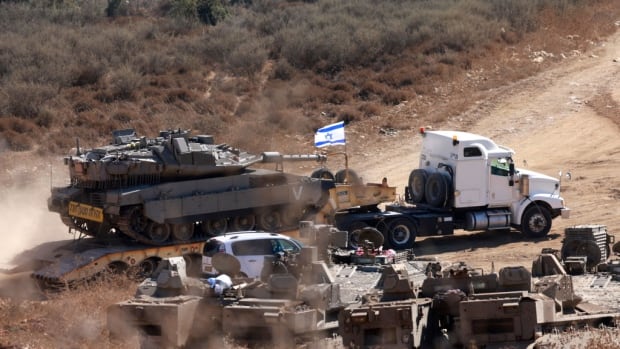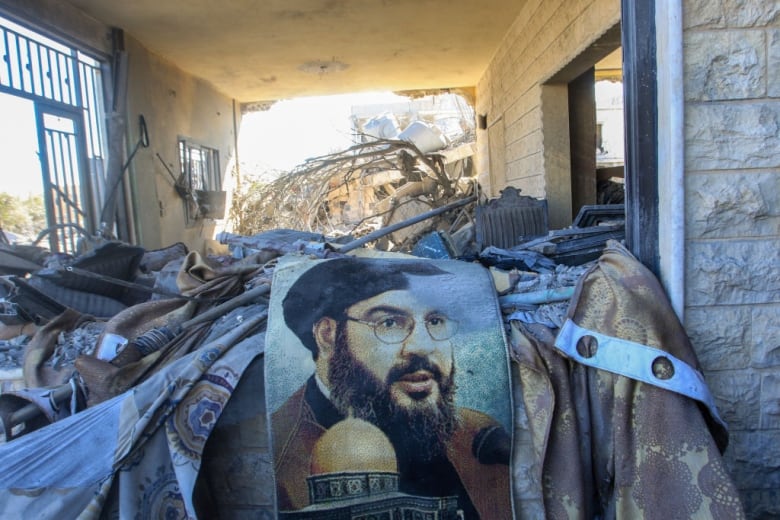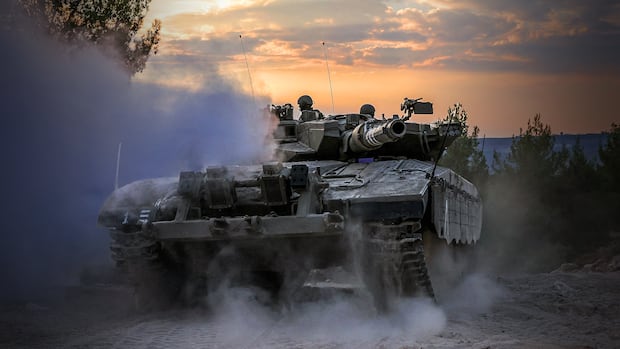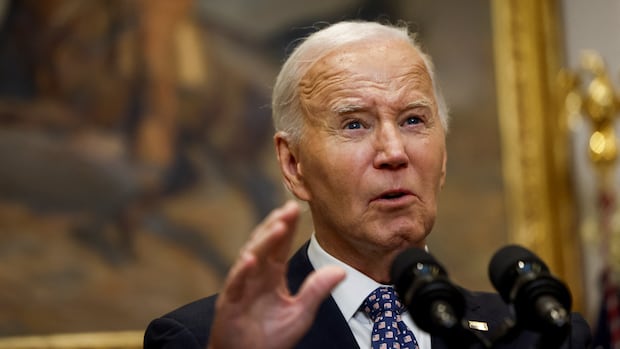
Israeli Defence Minister Yoav Gallant appeared to hint on Monday at a possible ground operation against Iran-backed Hezbollah militants in Lebanon, in a video statement during a meeting with military commanders in northern Israel.
“The elimination of [Hezbollah leader Hassan] Nasrallah is a very important step, but it is not everything. We will use all the capabilities we have,” he said.
“If someone on the other side did not understand what the capabilities mean, it is all capabilities, and you are part of this effort.”
Gallant reaffirmed Israel’s stated goal to make its northern areas safe from Hezbollah rocket fire and allow thousands of displaced residents to return.
About 60,000 people have been evacuated from the north because of near-daily attacks by the Iran-backed group that began after Hamas-led militants from Gaza launched their deadly attacks on southern Israel nearly a year ago.
As tensions grow along Israel’s northern border with Lebanon, a top Israeli military official says troops are preparing for a potential ground invasion targeting Hezbollah military outposts. Andrew Chang explains what a full-scale invasion would look like and why many world leaders are fearing the worst.
Images supplied by Getty Images and Reuters.
Israel has not ruled out a ground invasion and its troops have been training for one. Multiple Israeli tanks and armoured vehicles were seen in the country’s north last Friday after military chiefs said its air forces would continue to assist any possible cross-border ground operation in Lebanon.
Gallant’s comments come as Israeli airstrikes on targets in Beirut and elsewhere in Lebanon continued, extending a two-week-long wave of attacks that has eliminated several Hezbollah commanders, including the group’s veteran chief Hassan Nasrallah, last Friday.

When asked if he knew anything about plans for a “limited operation into Lebanon,” U.S. President Joe Biden on Monday said, “I am more aware than you might know and I’m comfortable with them stopping. We should have a ceasefire now.”
Nasrallah’s killing, along with the series of attacks against the group’s communications devices, constitute the biggest blow to Hezbollah since Iran created it in 1982 to fight Israel.
Airstrikes have also killed around 1,000 Lebanese and forced one million to flee their homes, according to officials in Lebanon. On the weekend, the UN high commissioner for refugees said more than 200,000 have been displaced inside Lebanon.
Global Affairs Canada last week said two Canadians died in Lebanon amid the hostilities. Global Affairs Minister Mélanie Joly has also said Ottawa is booking seats on commercial flights to help Canadians get out of Lebanon.
Hezbollah ready for any land invasion
Hezbollah’s deputy secretary general, Naim Qassem, said on Monday his group would appoint a new leader at the earliest opportunity to replace Nasrallah and vowed that the Iran-backed organization would continue fighting Israel.
“The Islamic resistance will continue to confront the Israeli enemy in support of Gaza and Palestine, in defence of Lebanon and its people, and in response to assassinations and the killing of civilians,” said Qassem.
Qassem said Hezbollah’s fighters had continued to fire rockets as deep as 150 kilometres into Israeli territory and were ready to face any possible Israeli ground incursion.
“If the Israelis decide to enter by land, the resistance forces are ready for a ground engagement … we are confident that the Israeli enemy will not achieve its goals and we will emerge victorious from this battle,” said Qassem.
France urges restraint
French Foreign Affairs Minister Jean-Noel Barrot again urged Israel on Monday not to undertake any ground invasion of Lebanon, saying France will step up its support for the Lebanese army.
“I … urge Israel to refrain from any ground incursion and to cease fire. I call on Hezbollah to do the same and to refrain from any action likely to lead to regional destabilization,” Barrot told reporters while visiting Lebanon.
Israel has hit Lebanon with a two-week wave of attacks, killing Hezbollah chief Hassan Nasrallah and several commanders but also leaving around 1,000 Lebanese dead and forcing one million to flee their homes, according to officials in Lebanon.
U.S. President Joe Biden, who held a press briefing about the aftermath of Hurricane Helene on Monday, took a question about escalating tensions in the Middle East and the possibility that Israel’s military might launch a limited operation inside Lebanon.
Hezbollah has pledged to confront any Israeli ground invasion of Lebanon.
Meanwhile, Germany has evacuated non-essential staff, families of embassy workers and German nationals who are medically vulnerable out of Lebanon and will support others trying to leave, a joint statement by the foreign and defence ministries said on Monday.
The German foreign ministry raised its crisis level for missions in Beirut, Ramallah and Tel Aviv again at the weekend, though the embassies there remain operational.

